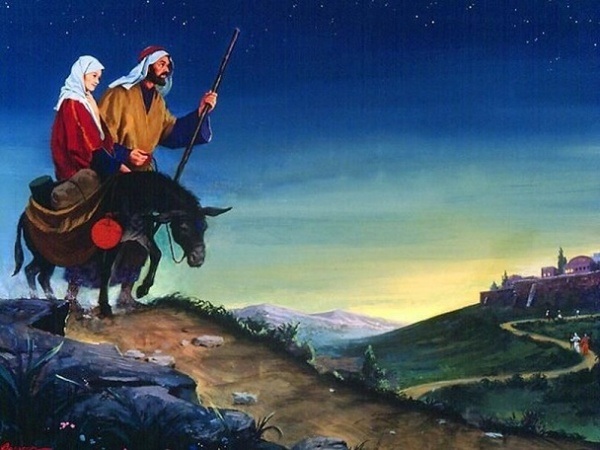Sunday before the Nativity of Christ: the Good Tidings
17 December 2022When people aren’t feeling at their best, what they least want to hear is bad news. On the other hand, what they’re always wanting to hear is a good bit of news that’ll give them a boost and the courage to get on with life. Incontrovertible testimony to this truth is the recent change in habits of some of our fellow-citizens. For example, you hear a lot of people saying: ‘I don’t want to watch the news any more… it’s all so miserable’. Or, on the other hand, somebody will exclaim: ‘At last, some good news… you’ve made my day…You’ve put me in a good mood’.

And right in the middle of this quest for some joyful news, we have the festivities. People who are weary and disgruntled are looking for a change in their spirits, within the context of the celebrations. They look at the lights, the decorations, the gaiety of the time and try to find a light, a ray of joy that will dispel their gloom and pessimism. But will they manage to do so?
Perhaps, perhaps not. But they certainly won’t achieve much by standing at the edge of the festal atmosphere, by looking exclusively at the external aspects of the feast.
Because, behind the facade that people erect every year in order to change their everyday routine, there’s a unique event, which they usually overlook or don’t bother to weigh the significance of.
And this event is God’s coming into the world. Is there anything more important that could have happened in human history? God came to us people and became one of us, lived with us, shared our anxieties and in the end died- dishonourably. And why did He do so? Well, to save us. To make us gods. To raise us up on high, to the heavens, which was the purpose for which we were made in the first place.
Today’s Gospel (Matth. 1, 1-25) show us the precise meaning of the word [= ‘gōd spel’], which is ‘good news’ or glad tidings. This Sunday, Saint Matthew the Evangelist comes to remind us of the earth-shattering event of God’s nativity. He Who created the ages, instantly passes through all the ages of human history and becomes visible in the present. The Gospel writer lists His forebears. They’re people from all walks of life and all classes: kings and paupers; sinners and saints; righteous and wicked. Because he wants us to know that Christ isn’t from a ‘noble lineage’ in human terms. The Lord took on human nature as a whole. He didn’t choose only the bright, the good side, because He wanted all of it. He took upon Himself the whole of our nature in order to make us gods. He took sin with Himself, as well, in order to cleanse it.
That’s the really good news we’ve been waiting for. What all people who dwelt and dwell in the darkness of ignorance were expecting. It’s the message of deliverance from what was binding us. He came- and let’s not ignore that. God was born on earth and is born in the hearts of all those who truly seek Him. Let us open up our hearts to Him and then, believe me, the lights of the festival will no longer be ephemeral.






